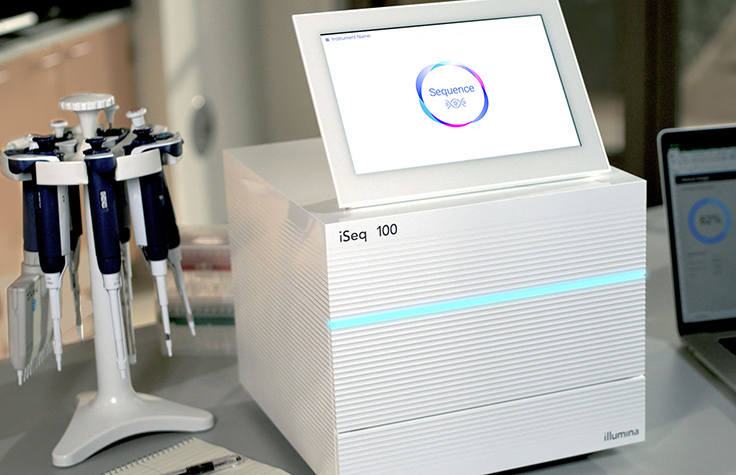
29 October 2018
High-quality and accurate sequencing data from the iSeq, in combination with extensive epidemiological findings, enabled local scientists to analyze transmission patterns and trace the origin of the outbreak.
With the exception of a few lab power outages, the iSeq was running full-force, performing end-to-end next generation sequencing (NGS) reactions using a targeted enrichment strategy that combines a stranded RNA-seq preparation followed by an in-solution hybridization enrichment reaction. While sequencing was underway, Catherine Pratt was training local scientists on proper sequencing techniques and protocols. All this work yielded high-quality, accurate data to characterize the strain responsible for the EVD outbreak.
The first EVD case was identified in May 2018 in the Bikoro health zone, in the Équateur Province. By the time July rolled around, 54 people were infected in three zones - Bikoro, Iboko, and Wangata – and 33 people lost their lives. At the culmination of July everyone breathed a sigh of relief, the outbreak was declared over and first responders from abroad started to pack up and leave Kinshasa. Merely one week later, on August 1, a second outbreak was detected in the region of North Kivu, 2000 km east from the Équateur Province.
The newly established field sequencing capabilities at the INRB were put to the test and enabled a prompt response to the new outbreak. Dr. Muyemebe and his team were able to generate actionable data within four days of sample receipt. The data demonstrated that the North Kivu outbreak was unrelated to the recent outbreak in the Équateur Province.
The iSeq provided timely, crucial information: the viral strain was verified, and this information helped the scientists determine their next steps in response to the outbreak. High-quality and accurate sequencing data from the iSeq, in combination with extensive epidemiological findings, enabled local scientists to analyze transmission patterns and trace the origin of the outbreak. The addition of Illumina technology helped to power an effective response to this public health crisis.
Wiley’s goal is to create a network of trained scientists throughout Africa so that the response to public health epidemics can be conducted locally and expeditiously. “The new reality is that you don’t need to send samples to fancy genome centers to conduct this work; the scope of where sequencing can be performed has expanded considerably. The protocols and reagents for processing samples are much more user friendly and the sequencers more portable. This all results in generating data and results faster and enabling NGS to become another tool for outbreak response,” he said.
And, as for Illumina, we’re proud to support these initiatives throughout Africa by building sequencers that unlock the human (and viral) genome to improve health.
*The information contained in this article does not necessarily reflect the position or the policy of the Government and no official endorsement should be inferred.


